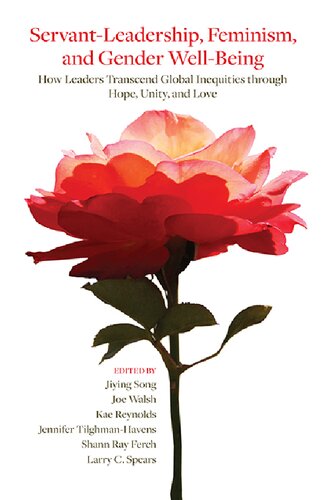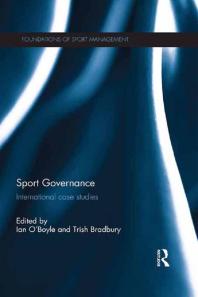he result of meeting such needs is that others grow wiser, more free, more healthy, and more autonomous. In Greenleaf ’s conception, in a good relational environment, a good home community from which to live and move, people are liberated toward the best sense of healthy humanity and therefore become better able to serve, and the least privileged of society are benefited or at least not further deprived. Juana Bordas, a Latina leader known for her vitality and profound advancement of servant-leadership in the contemporary leadership landscape, also calls people to a deeper sense of home. She refers to servant-leadership as having a powerful base in ancient and contemporary collectivist cultures, the will to serve being the foundation for the collective’s trust in a person or group’s ability to lead. Bordas (2007) recognizes a profound communal broadening and deepening in current national, and by extension, international life: “The rapidly increasing cultural and racial diversity . . . is challenging leadership to better reflect the values and worldviews inherent to our multicultural society” (p. ix). She notes a more holistic and diverse sense of leadership in families and communities will only be affirmed “when the voices, values, and contributions of all . . . are integrated into mainstream leadership” (p. ix). In a world where leaders and organizations face global pandemics and power conflicts, patriarchy and gender dualism still prevail, be it in the East or in the West. Gender stereotyping and the glass ceiling continue to affect humanity’s conceptualizations of leadership (Barreto et al., 2009; Eagly & Sczesny, 2009; Olcott & Hardy, 2006; Parsons, 2019; Reynolds, 2013, 2014, 2020). The ill effects of patriarchy are deeply rooted and ubiquitous, and often overlooked by both men and women (Johnson, 1997). In the ancient Chinese philosophy of the cosmos, males are heaven while females are earth, males are qian while females are kun, and males are yang while females are yin (Bao, 1987). This was dichotomous but equal; there was neither high nor low between yin and yang (Bao, 1987). It was not until the Han Dynasty (around 100 BC) that yin and females were degraded to be inferior and subjected to yang and males (Bao, 1987). This ideology led to women’s foot-binding, concubinage, arranged marriage, and deprival of education in ancient China (Bao, 1987). Women were subdued based on the ascendancy of patriarchy, the focus on the contradictory aspects of yin and yang, and the elevation of yang (Bao, 1987; Xie, 1916/2011). It set the norms for Confucianism and controlled Chinese people for two millennia. Having stressed the equally and mutually complementary character of yin- yang, some scholars paved the way for the women’s egalitarian movement in nineteenth-century China (Bao, 1987; Xie, 1916/2011).
چکیده فارسی
نتیجه برآوردن چنین نیازهایی این است که دیگران عاقل تر، آزادتر، سالم تر و خودمختارتر می شوند. در تصور گرین لیف، در یک محیط مناسبات خوب، یک جامعه خانگی خوب که از آن زندگی و حرکت کنند، مردم به سمت بهترین حس انسانیت سالم رها می شوند و بنابراین بهتر می توانند خدمت کنند و کمترین امتیاز جامعه از آن بهره مند می شوند یا حداقل بیشتر محروم نیست. Juana Bordas، یک رهبر لاتین که به خاطر سرزندگی و پیشرفت عمیق خود در رهبری خدمتگزار در چشمانداز رهبری معاصر شناخته شده است، همچنین مردم را به احساس عمیقتری از خانه فرا میخواند. او به رهبری خدمتگزار به عنوان پایگاهی قدرتمند در فرهنگهای جمعگرایانه باستانی و معاصر اشاره میکند، اراده برای خدمت، پایه و اساس اعتماد جمعی به توانایی یک فرد یا گروه برای رهبری است. بورداس (2007) گسترش و تعمیق عمیق اجتماعی را در زندگی ملی و بین المللی کنونی تشخیص می دهد: «تنوع فرهنگی و نژادی به سرعت در حال افزایش . . . رهبری را به چالش می کشد تا ارزش ها و جهان بینی های ذاتی جامعه چندفرهنگی ما را بهتر منعکس کند» (ص. ix). او خاطرنشان میکند که حس رهبری جامعتر و متنوعتر در خانوادهها و جوامع تنها زمانی تأیید میشود که «صداها، ارزشها و مشارکت همه . . . در رهبری جریان اصلی ادغام می شوند» (ص. ix). در دنیایی که رهبران و سازمانها با همهگیریهای جهانی و درگیریهای قدرت روبرو هستند، پدرسالاری و دوگانگی جنسیتی همچنان حاکم است، چه در شرق و چه در غرب. کلیشههای جنسیتی و سقف شیشهای همچنان بر مفهومسازی بشریت از رهبری تأثیر میگذارد (بارتو و همکاران، 2009؛ ایگلی و اسکزنی، 2009؛ اولکات و هاردی، 2006؛ پارسونز، 2019؛ رینولدز، 2013، 2020، تأثیرات بد پدرسالاری عمیقاً ریشه دار و در همه جا وجود دارد و اغلب توسط مردان و زنان نادیده گرفته می شود (جانسون، 1997). در فلسفه کیهان چینی باستان، نرها بهشت هستند در حالی که ماده ها زمین، نرها کیان هستند در حالی که ماده ها کان هستند و نرها یانگ هستند در حالی که ماده ها یین هستند (بائو، 1987). این دوگانگی اما برابر بود. بین یین و یانگ نه زیاد بود و نه پایین (بائو، 1987). تا زمان سلسله هان (حدود 100 سال قبل از میلاد) بود که یین و زنان به پستی گراییده و در معرض یانگ و مردان قرار گرفتند (بائو، 1987). این ایدئولوژی منجر به پایبندی، صیغه، ازدواج منظم و محرومیت زنان از تحصیل در چین باستان شد (بائو، 1987). زنان بر اساس برتری مردسالاری، تمرکز بر جنبههای متضاد یین و یانگ، و اعتلای یانگ، مطیع بودند (بائو، 1987؛ زی، 1916/2011). این هنجارها را برای کنفوسیوسیسم تعیین کرد و مردم چین را برای دو هزار سال کنترل کرد. برخی از محققین با تأکید بر ویژگی مکمل و یکسان یین یانگ، راه را برای جنبش برابری طلبانه زنان در چین قرن نوزدهم هموار کردند (بائو، 1987؛ زی، 1916/2011).
ادامه ...
بستن ...
n the West, embedded in male-focused interpretations of the Bible as well as the more atheistic influx of industrialism, hypercapitalism, reductive science, and empire, patriarchy has been a powerfully controlling and degrad- ing set of conceptual tools used to maintain, enforce, contest, and adjudicate social order (Miller, 2017). Notably, a well-discerned vision of spiritual life, be it in Buddhism, Islam, Judaism, Confucianism, or Christianity, has the seeds of equality and dignity for all people, but in most traditional forms of religious interpretation an undue focus on the maleness of God, wom- en’s subjugation, and hierarchy with regard to people, church, temple, or mosque is still prevalent (Ruether, 1989). Women have been excluded from leadership roles in many religious bodies based on certain interpretations of honored scriptures (Cowles, 1993; Howe, 1982). People might think that this issue has been less intense in recent history because egalitarians have made progress, but many men as well as women throughout the world, religious or otherwise, still take this stance. The Council on Biblical Manhood and Womanhood (1988) clearly states in its Danvers Statement: “Some governing and teaching roles within the church are restricted to men” (Affirmations 6.2). Despite many scholars’ vigorous efforts of interpreting the Bible in a more discerning historical context (Bailey, 2000; Belleville, 2003; Kroeger, 1979; Wright, 2004), gender discrimination prevails in religious leadership in China and the United States (Song, 2018, 2019). Atheistic, agnostic, and nonreligious leadership worldwide embodies a similar calcification of gender discrimination, as systemic sexism, homophobia, racism, and classism still pervasively dominate the systems of the modern world economically and structurally.
ادامه ...
بستن ...










![Our mission to the court of Marocco [Morocco] in 1880, under Sir John Drummond Hay - pdf Our mission to the court of Marocco [Morocco] in 1880, under Sir John Drummond Hay - pdf](https://dl.libsan.ir/images/1/12/112108724_694b9e9769312.jpg)